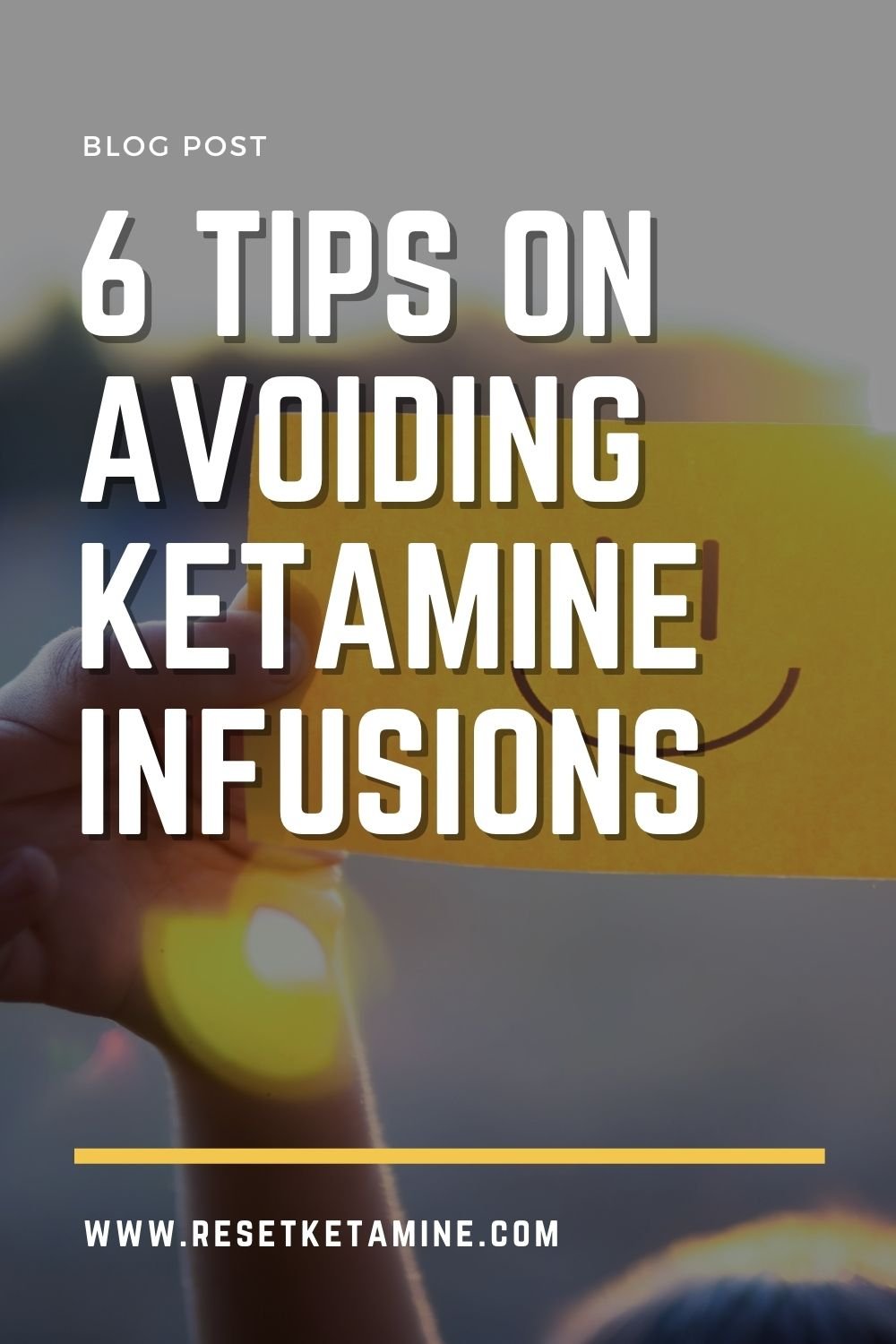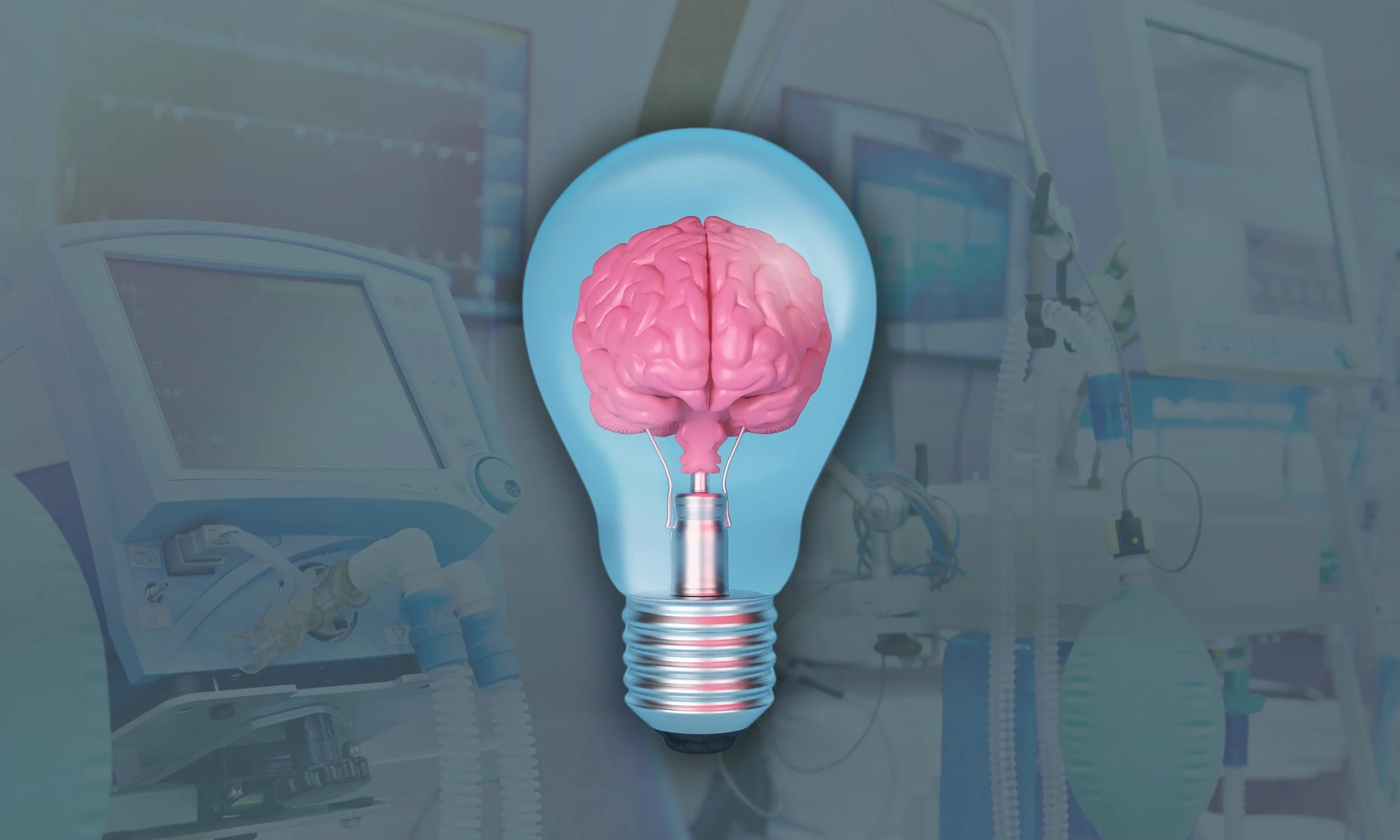You don’t have the time nor money to get infusions, or perhaps you are not ready...whatever your reason is, we get it. As much as we love educating about ketamine and providing ketamine infusions, we’d love a world so healthy that we wouldn’t need to be in business.
However, the reality is there are a lot of people hurting, and we are honored to help them. But back to you all who aren’t ready or don’t ever want to find themselves in a ketamine clinic - here are 6 strategies to help you avoid getting a ketamine infusion:
Feel your feelings AKA process your feelings. Talk them out, write them out, and fully feel them. When you are not processing and integrating your feelings, you are putting effort and energy to depress and push down feelings or memories. To get through this tough time, is to acknowledge your feelings, thoughts, and experiences. Not dealing with them now, allows them to fester and can cause further issues later. Sure, it isn’t comfortable, but the discomfort is going to happen regardless. We recommend to simply get it done NOW.
Sleep. Your brain requires sleep to process what you have gone through throughout the day. Sleep provides rest to both the mind and the body. Consider the alternative, not sleeping! Sleep deprivation is a method of torture used during times of war. That should convince you enough. How much of your unhappy feelings (physically and emotionally) are a result of exhaustion? How would a good night’s rest alter your day? Read our 12 sleep tips & hacks.
Meditate. You know what’s worse than the individual that hurt you emotionally or physically, or perhaps the thing you did or didn’t do? The persistent, lingering thoughts you have about it - the negative self talk, the regret, and the “shoulda, coulda, woulda”. Meditation is a powerful way to train and hone the mind to focus on the present moment. Anyone who has terrible, unkind words directed towards them would feel depressed. But if those words are being self generated, it’s time to reset the mindset and meditation is one of those ways. Read this great article about meditation or scroll to the bottom of the blog for a quick video on How to Meditate.
Watch what you consume. Yes, that includes food, books, movies, and internet to name a few things we physically and mentally consume.. As much as we’d like to believe we are in isolation, we are not! Drinking too much alcohol will make you tired and run down and you won’t feel great. Binging on TV or consuming content on the internet could trick you into believing your are not enough and broken (By the way, you are enough!). Spend time with people who lift you up. Eat nutritious food which fills you and heals you. Remember the old saying…”Garbage in equals garbage out.”
Stop identifying with your diagnosis. You are not your depression, anxiety, nor are you, your pain. You are much more than a traumatic event. You are [fill in your name here], who is dealing with those symptoms. You are not a victim to your diagnosis either. You are a warrior and champion. You are person who is living life, a life which was never promised to be fair and easy. For many, identifying with an illness or diagnosis results in feeling significance or allows for sympathy and attention. While that may fulfill part of you, it comes at a cost which hopefully now you are recognizing is not worth it.
Exercise. When you exercise your heart, you are also exercising your brain. In addition to the cardiovascular benefits, the benefits on your mood and emotion are potent. Exercise is known to increase brain-derived neurotrophic factor (BDNF) and improves your brain health. Furthermore, exercise releases feel good endorphins and is a great way to release tension and stress. Whether it’s taking the stairs, doing ten pushups, or going for a short walk, every little bit counts.
Let’s be clear here, there is nothing new or surprising about the 6 strategies above. You’ve probably have heard of them all. They are simple and effective, but not easy since they require commitment and practice in doing them. Eventually, they will be come a habit. First we create habits and then habits end up creating us.
With these good habits, they could keep you away from a ketamine infusion. What do you think?
Be generous and share this with someone who could benefit from this!











Dr. Ko shares a personal update following a car bomb explosion that damaged their ketamine clinic, along with three practical resilience tools that are helping during this challenging time. Learn about the FMA mnemonic for focusing on what you can control, the Stoic philosophy of amor fati for accepting and finding meaning in difficult circumstances, and the shrimp shell metaphor for embracing growth through discomfort.